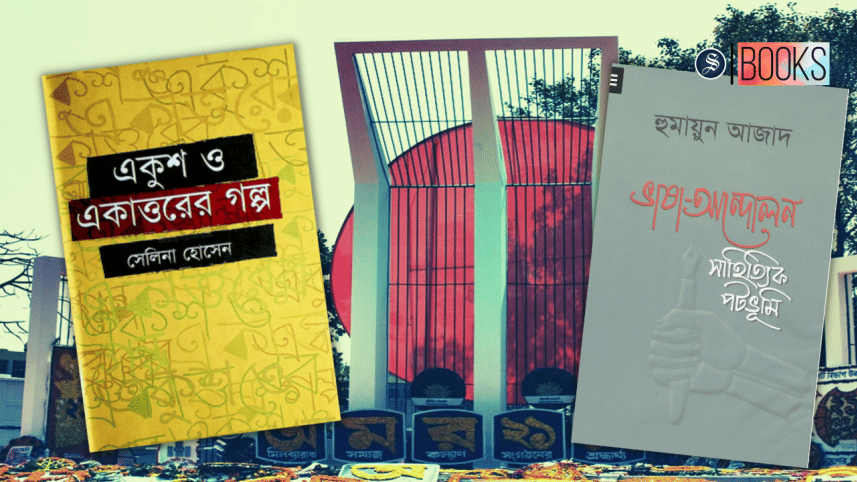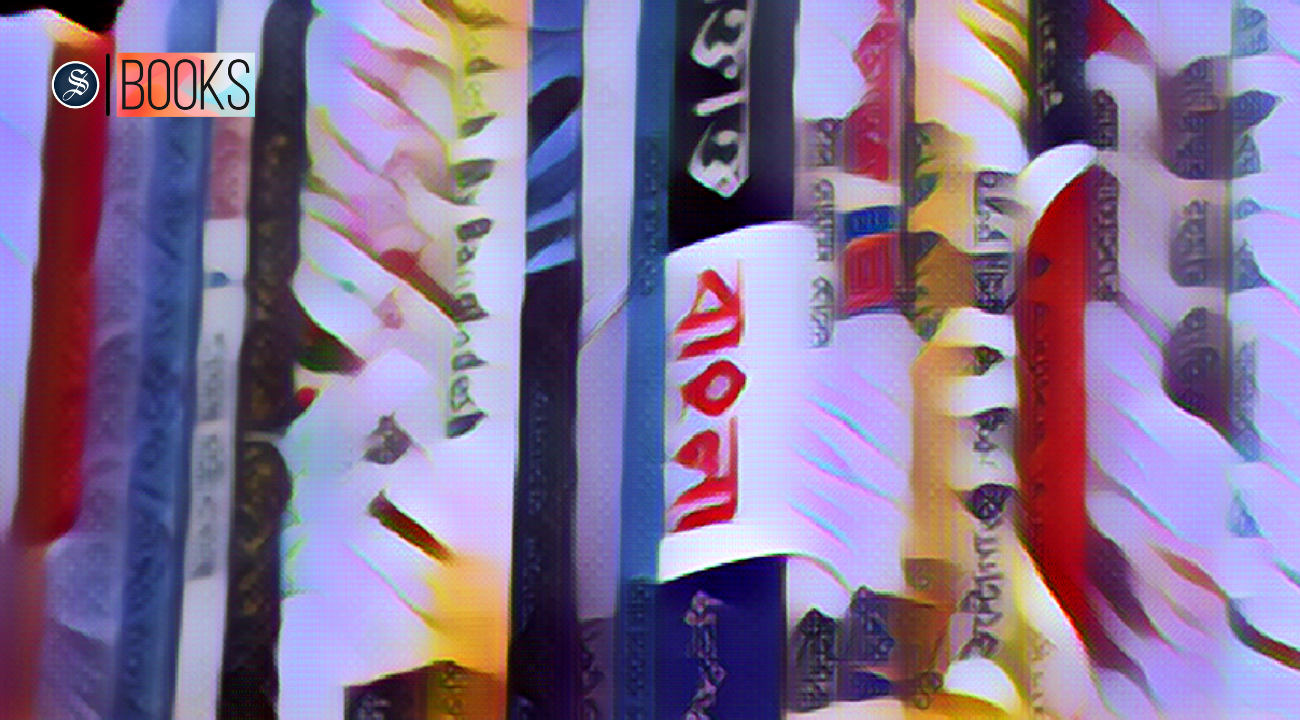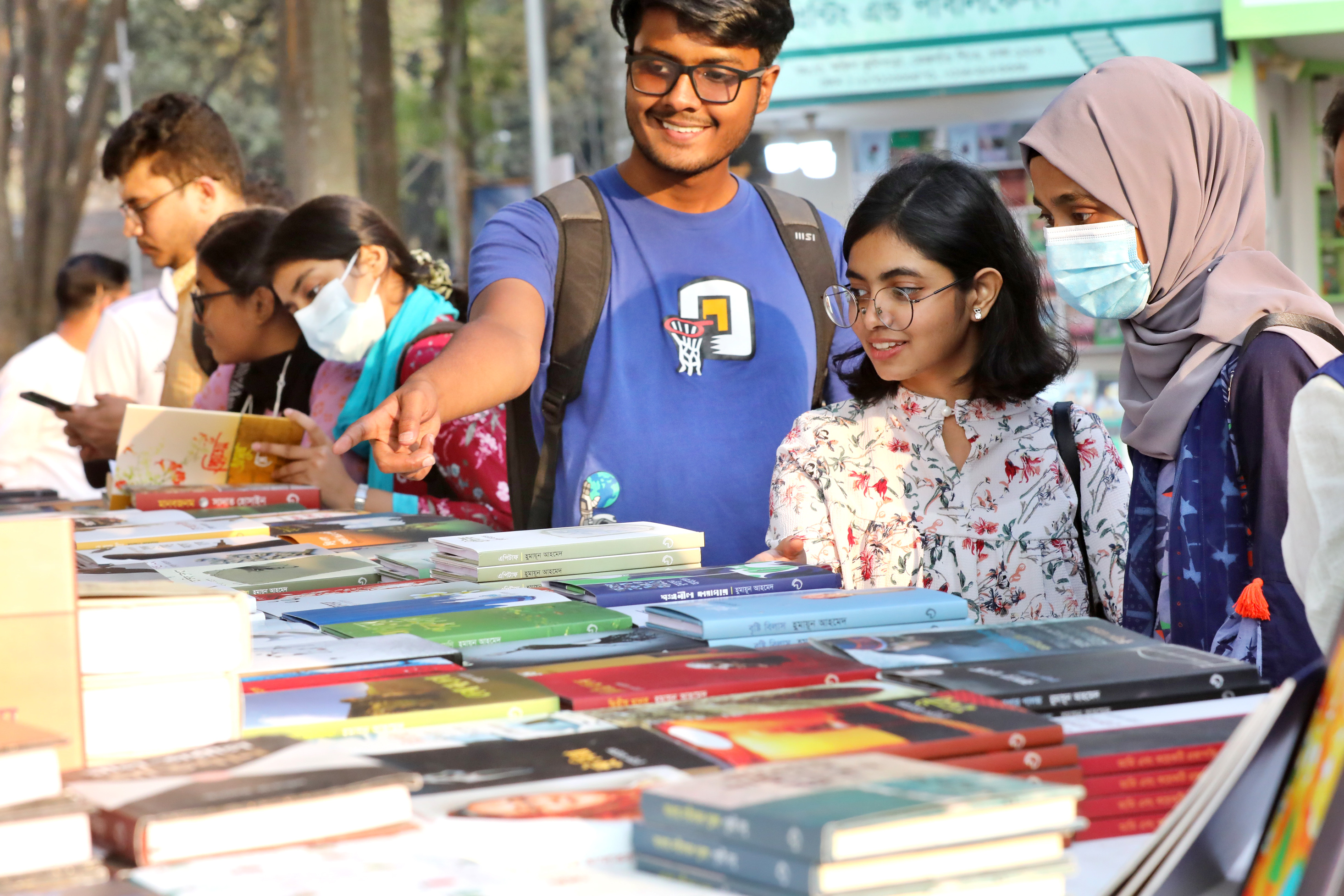5 books to read this year in observance of Ekushey February

The evolution of Bangladesh as a nation cannot be viewed as a singular event. The liberation war was formulated after years of rebellion and revolution, with February 21, 1952 being one of the major turning points. The landmark event not only united the nation to speak up against oppression but paved a new direction for what ultimately led to our independence. Here are five books you can read to learn more about this history, and commemorate the International Mother Language Day.
FIFTY YEARS OF EKUSHEY FEBRUARY CELEBRATING THE MOTHER TONGUE
Mustofa Zaman Abbasi (ed)
Bangladesh Shilpakala Academy, 2002
Mustofa Zaman Abbasi's compilation traces the history of the Ekushey February and presents the stories of 50 years of the language movement. While there are several exceptional works written in Bangla, Abbasi attempts to observe the 50th anniversary of the Bangla Language Movement by introducing its history to the outside world and talking about the movement's significance. The book is a collection of the works of Serajul Islam Chowdhury, Rafiqul Islam, Hasnat Abdul Hye, Abdul Ghafur, Dr Razia Khan, Karunamaya Goswami, Syed Manzoorul Islam, and many others. It also includes several translated articles from the likes of Rabindranath Tagore, Kazi Nazrul Islam, Dr Muhammad Shahidullah, Professor Munier Chowdhury, which adds more depth and perspective to the text.
EKUSH O EKATTORER GOLPO
Selina Hossain
Nusrat Prokashoni, 2016
Selina Hossain is well known for her works highlighting the liberation war. In this anthology, she presents 15 short stories—10 from the liberation war and 5 from the language movement. Throughout the text, she emphasises the hardships faced by women and the strength displayed by female freedom fighters. A blend of facts and fiction, these short stories are a brilliant way to look back at history and find out more about the movement that shaped the Liberation War. For young readers who are willing to read more about that time, this anthology serves as the right source.
BHASHA ANDOLON
Humayun Azad
Agami Prokashoni, 2019
1952 is regarded as the first organised outpouring of Bangladeshi nationalism. Humayun Azad, in this research on the social and artistic character of the literature of Bangladesh, tries to find out if there were signs of a language movement between the period 1947 to 1951. The newspapers and literature of the time did not capture the spirit of the nation, rather focussed on expressing anti-Pakistani, anti-progress sentiments. However, it witnessed the emergence of a genre of Bangla literature, which was very different from the Pakistani literature and in certain ways perceived to be anti-Pakistani as well. This small movement developed out of rejection, associated with the language movement, became the mainstay of Bangladesh literature. Dr Azad's book skilfully captures the infrastructure that created this literature, and the nationalism embodied within it.
AN EKUSHEY ANTHOLOGY
Niaz Zaman (ed)
Writers Ink, 2022
This anthology, edited by Niaz Zaman, features 25 literary pieces, including poems, stories, and a play. In addition to several English originals, the book contains translated works of notable writers like Anisuzzaman, Asad Chowdhury, Jahanara Arzoo, Abdul Gaffar Chowdhury, Zahir Raihan, Selina Hossain, Shaukat Osman, Bimal Guha, Hasan Hafizur Rahman, and Jharna Das Purkayastha. There is a fine divide between the works, where early stories focus on events from the day itself and the latter ones shed light on how the nation's attitude towards Bangla changed over the years. There are not a lot of English books talking about the language movement, but this book adds to the collection of narratives that portray the history and cultural significance of International Mother Language Day.
PHIRE DEKHA AMAR EKUSH O ONNANNO BHABNA
Ahmed Rafiq
Shomoy Prokashona, 2023
This book narrates the eyewitness experience of some of the most memorable and fascinating Ekushey events. A total of 25 articles of different genres and styles are included in this collection. In addition to tracing history, there are several discourses on subjects like student politics and judgement analysis of contemporary international events including the Srilankan bankruptcy, Pakistani anarchy, and the Russia-Ukraine war. Thus, the text reflects the author's personal thoughts and judgement. It also features discourses on literature and culture, as the author talks about Rabindranath's songs, and the sheer neglect involving more research into his life in present time, and so forth.
Maisha Islam Monamee is a student of IBA, DU, and a freelance journalist who likes reading, scribbling, and blogging. Follow @monameereads on Instagram.




 For all latest news, follow The Daily Star's Google News channel.
For all latest news, follow The Daily Star's Google News channel. 

Comments